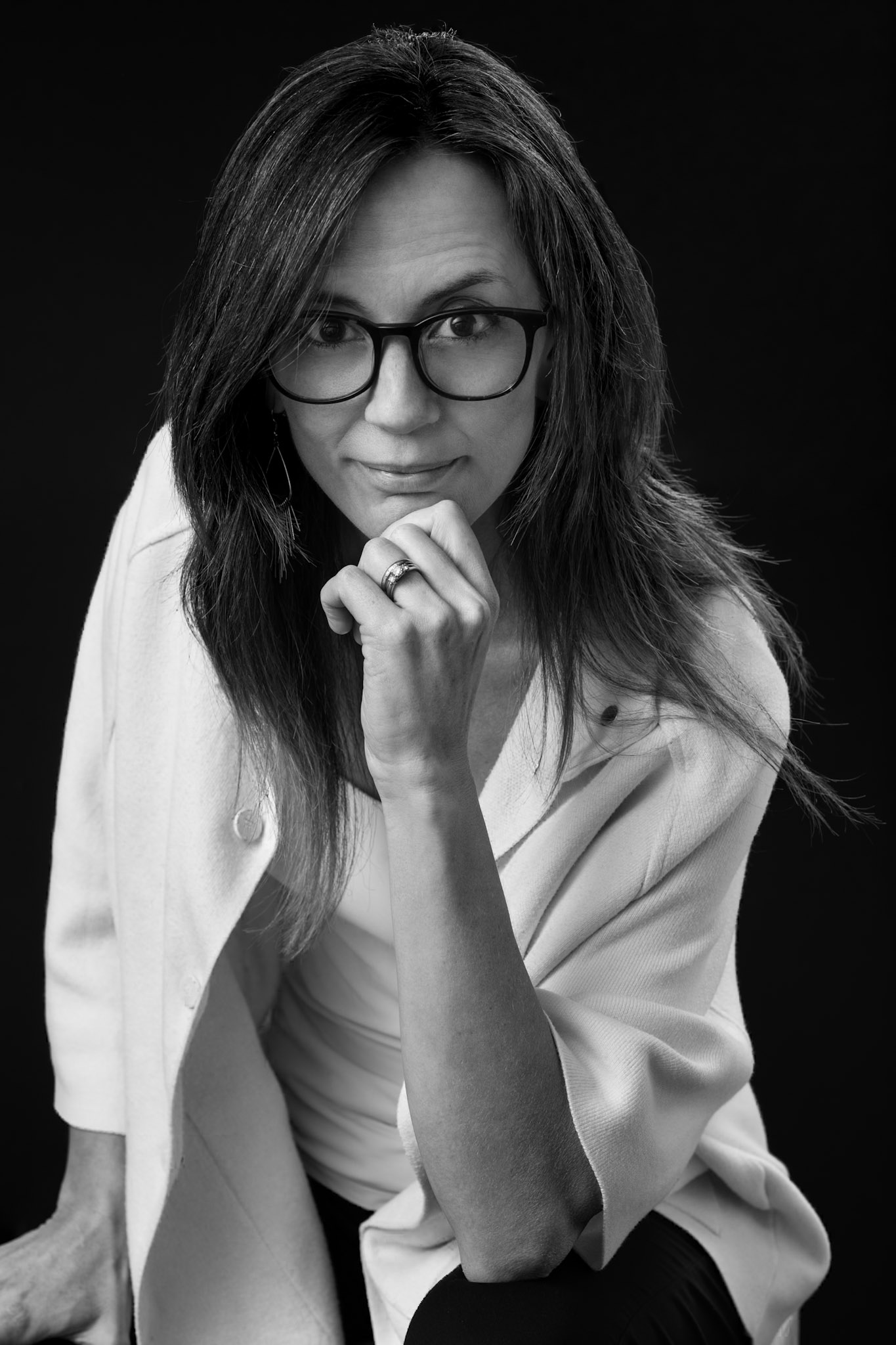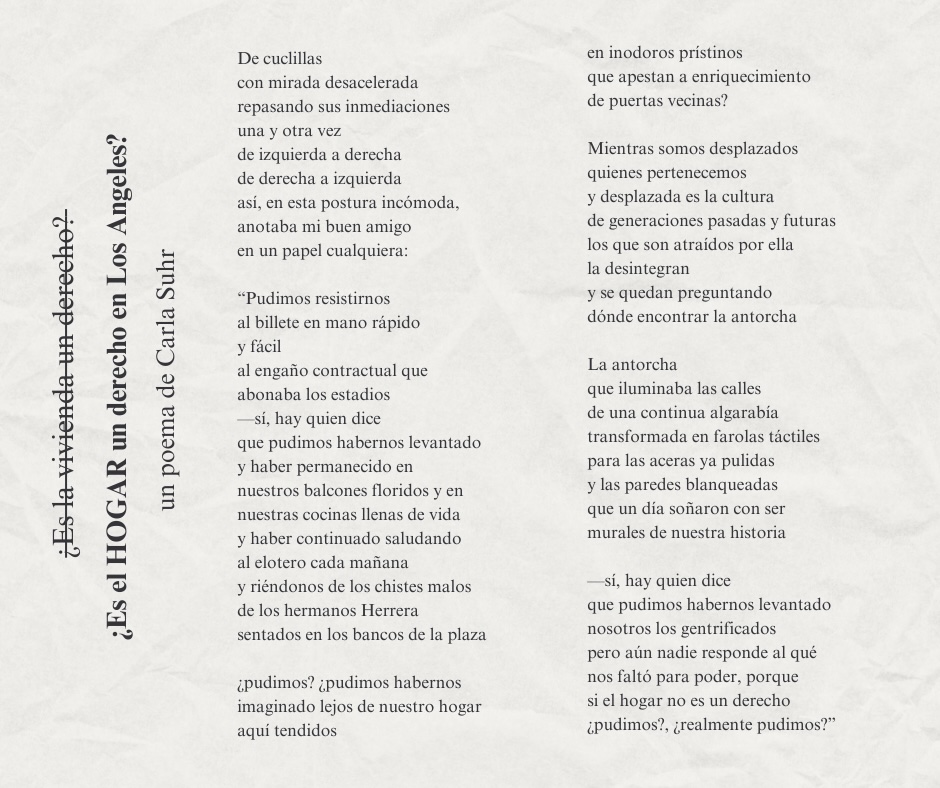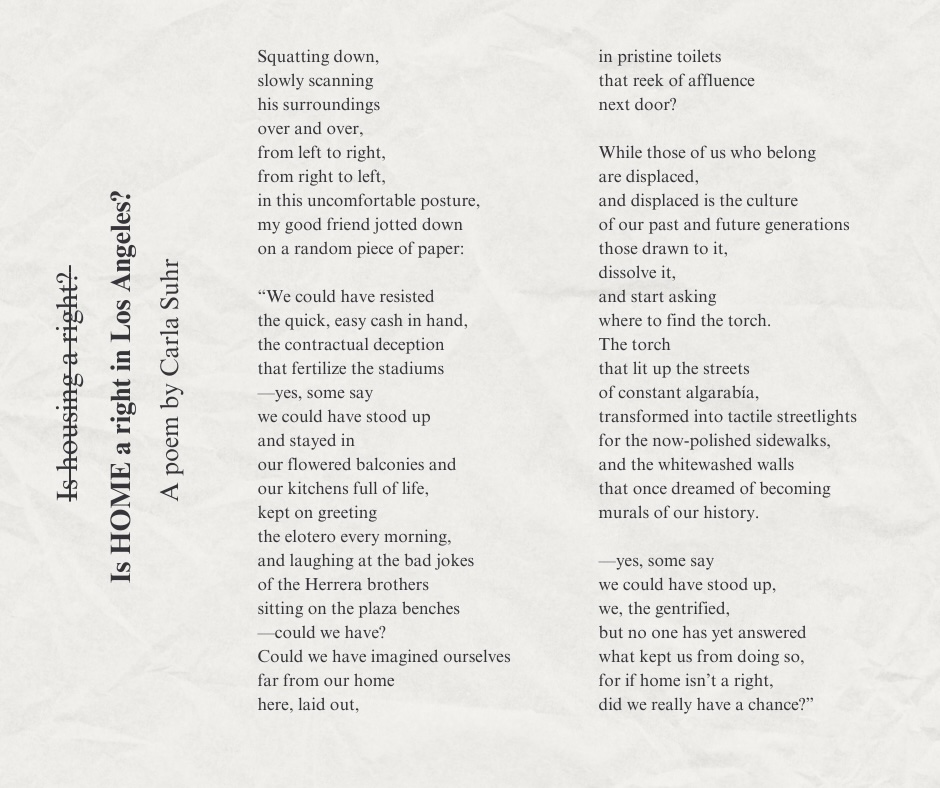We’re excited to introduce you to the always interesting and insightful Carla Suhr. We hope you’ll enjoy our conversation with Carla below.
Alright, Carla thanks for taking the time to share your stories and insights with us today. Can you talk to us about a project that’s meant a lot to you?
I have always been curious about social perspectives on housing as a human right and interested in exploring the systemic, historical, and other factors that explain various housing situations, as well as contributing to collective efforts to improve them. One of the projects closest to my heart addresses housing insecurity and is a collaboration with four community partners. Given the dire housing crisis that Los Angeles is currently facing and its disproportionate impact on Latinos, I developed a comprehensive partner-student-faculty project a few years ago in alignment with the LA County’s Stay Housed LA initiative. Through “Sus derechos de vivienda”, we assisted Spanish-speaking tenants at risk of eviction by assessing their cases, connecting them with legal resources, and creating bilingual brochures and guides for volunteers in the Spanish Housing Justice Hotline. In partnership with Chrysalis, we addressed homelessness by helping individuals overcome barriers to workforce reintegration. Students in “Capacitación laboral y alfabetización tecnológica” designed, conducted, and recorded workshops in both Spanish and English on resume writing, interviewing, job applications, and digital literacy. Additional project actions included virtual tutoring for Spanish-speaking children experiencing housing instability with School on Wheels and tenant rights advocacy with Inquilinos Unidos.
At the same time, these meaningful experiences provided me with unique insights into the stakeholders’ points of view, which were processed into poems on housing insecurity. My poem “Is HOME a right in Los Angeles?” explores themes of gentrification, displacement, and the loss of a vibrant neighborhood’s cultural identity in the face of economic pressures. Its imagery conveys a sense of nostalgia and highlights the emotional cost of displacement and the disintegration of a way of life. Through this poem, I question whether the displaced ever had the power to resist, pointing to deeper systemic issues that strip away the right to remain in one’s home.

Carla, love having you share your insights with us. Before we ask you more questions, maybe you can take a moment to introduce yourself to our readers who might have missed our earlier conversations?
As a community-engaged scholar at UCLA, I create projects that build bridges between academia and the community in areas such as legal, medical, educational, and social services, and the arts. All of my projects are interconnected in unique ways, and each holds distinct significance for me. What they share in common is a focus on addressing the priority needs of the Latino community of Southern California through direct community action, collaboration with other organizations and initiatives, and by fostering spaces for reflection and creative expression.
One of the values we bring to these projects is linguistic support to ensure that these initiatives are inclusive and accessible from a sociolinguistic justice perspective. Language is both a means of communication and a reflection of one’s cultural identity and worldview. Some organizations serve a large number of Spanish-speaking Latinos, yet they lack Spanish-speaking staff and resources that are linguistically and culturally appropriate. A constant goal of mine is to promote practices and attitudes that validate all language varieties and support linguistic diversity.
How can we best help foster a strong, supportive environment for artists and creatives?
Art is a beacon for society. It helps us understand our external and internal landscapes, challenges our perspectives, and, most importantly for me, serves as a tool to enhance social impact efforts. Artists and creatives invite us to become more aware, to reflect, to mobilize, and to imagine what some might consider impossible. Art has tremendous potential to unite us across time, space, and cultural and linguistic barriers. Therefore, artists and creatives should always have a seat at the table, with their creative spaces in social enterprises guaranteed. In a capitalist society like ours, this support is shown through both public and private investment.

What do you think is the goal or mission that drives your creative journey?
First and foremost, I create projects and write poetry to become a more cognizant person of the world we live in and to develop a deeper understanding of the complexities and dynamics that shape us. I hope my work contributes to impactful collective efforts, helps process personal and social events, and fosters thoughtful conversations where critical thinking and the expression of freedom are promoted.
Contact Info:
- Website: https://csuhr.humspace.ucla.edu/
- Instagram: https://www.instagram.com/carlasuhr/
- Linkedin: https://www.linkedin.com/in/carla-suhr-phd-65b70417/
- Other: Email: [email protected]



